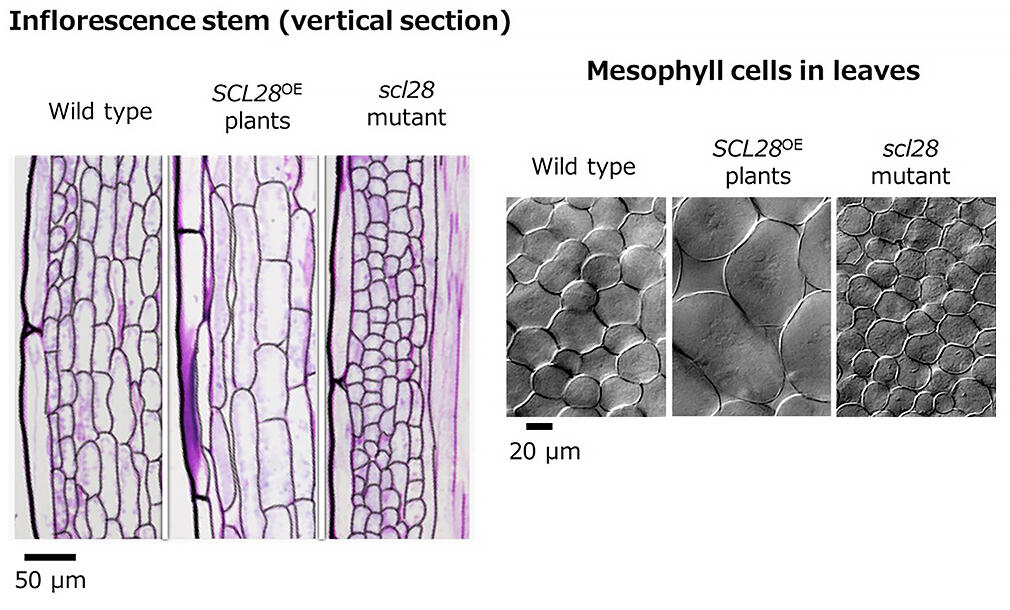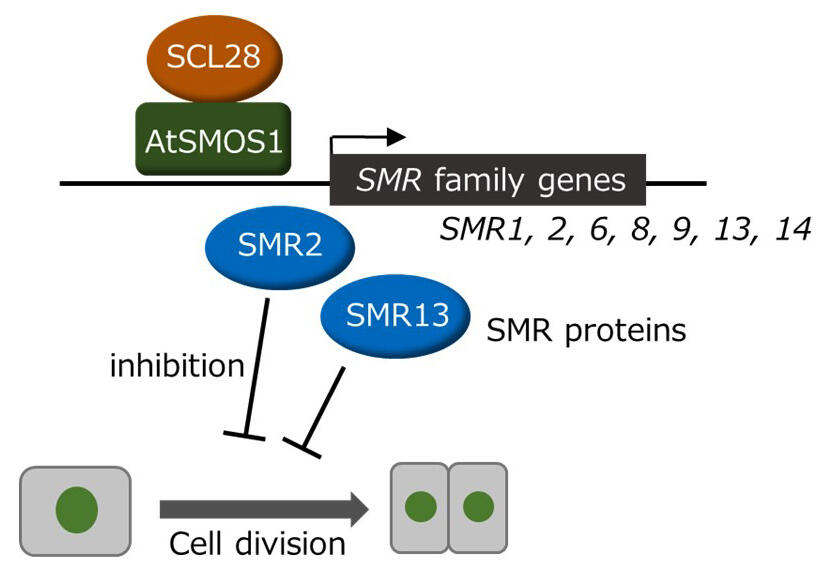A joint research group comprised of researcher Yuji Nomoto, Assistant Professor Hirotomo Takatsuka, and Professor Masaki Ito of the School of Biological Science and Technology, College of Science and Engineering, Kanazawa University, has succeeded in describing the mechanism by which plants control the size of their constituent cells. The bodies of plants and animals are comprised of individual cells, and the growth of these multicellular organisms occurs due to the simultaneous expansion in cell size and increase in number through cell division. However, the mechanism controlling the extent to which cells grow in size, thought to be subject to strict genetic control, had not yet been clarified.

(a) Vertical section of inflorescence stems from wild type, SCL28OE plants (SCL28-overexpressing plants) and scl28 mutants (plants lacking SCL28 function).
(b) Mesophyll cells observe in cleared leaves of wild type, SCL28OE plants and scl28 mutants
In comparison with wild type plants, cells are significantly enlarged when plants are overexpressing SCL28 and decreased in size when plants lose SCL28 function.
Provided by Kanazawa University
The research group decided to focus on the SCL28 gene, expressed when cultured cells of the tobacco plant divide, and using the model organism thale cress (Arabidopsis thaliana), analyzed individuals with varying levels of expression of this gene. The results showed a marked increase in cell size, but in plants in which SCL28 mutated and lost its function, cell size declined. Furthermore, because the influence of SCL28 on cell size effected cells in numerous plant organs such as the roots, stem, and leaves, rather than only a specific type of cell, these results suggested that a shared control mechanism exists for all cells comprising the plant body.

SCL28 associates with other proteins called AtSMOS1 and binds to promoter regions of multiple genes of SMR family. This results in transcriptional activation of those genes and increased amount of SMR proteins with a function inhibiting cell division. In growing plant organs, modulated expression of SCL28 quantitatively affects cellular amount of SMR proteins and fine tune activity of cell division.
Provided by Kanazawa University
The group also found that a gene with a similar sequence to SCL28 exists in other plants, such as rice, and that cell size was influenced in the same manner in mutated plants that lost the gene. Since the size of a plant is determined by the number of cells that make up its body and the size of each of these cells, growth is brought about by cell division and expansion in cell size. These results are attracting interest as potentially serving as a foundation for the development of technology to control plant growth through the artificial control of cell size.
According to Professor Ito, "This research may lead to the development of technology to increase the yield of agricultural crops or sources for plant-based bioplastics because the cell size of plants influences their growth and production capacities."
This article has been translated by JST with permission from The Science News Ltd.(https://sci-news.co.jp/). Unauthorized reproduction of the article and photographs is prohibited.




